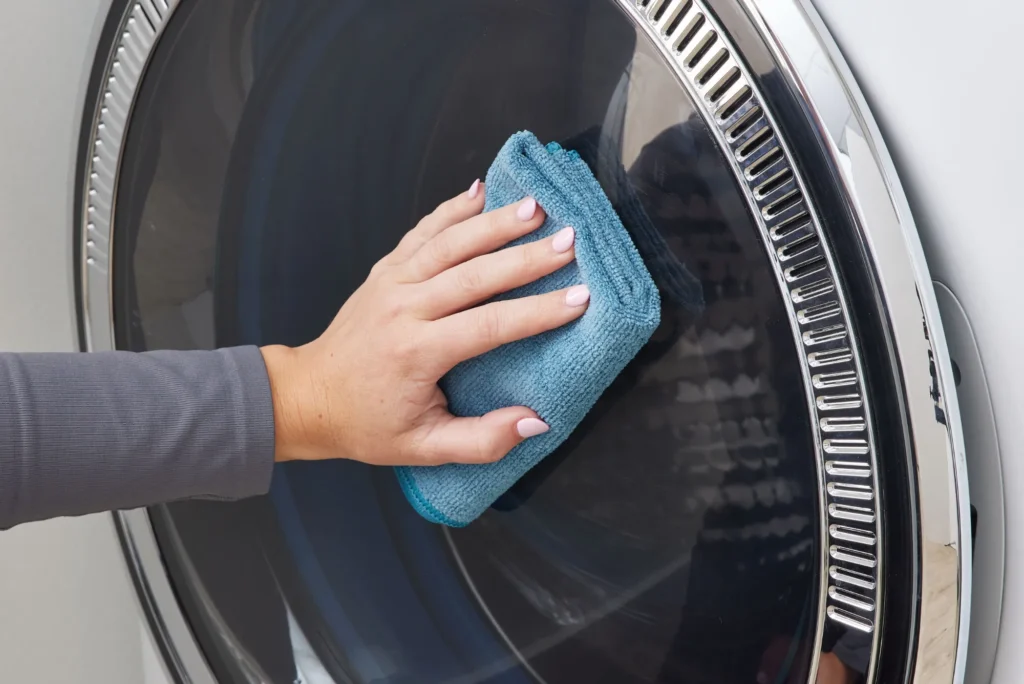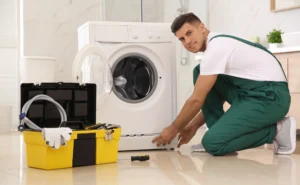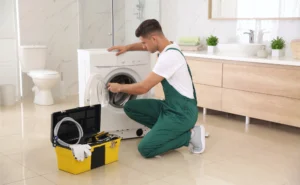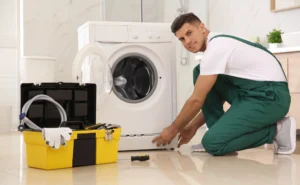Repairing a washing machine is a decision that often involves a delicate balance between cost, practicality, and environmental considerations. In this article, we’ll delve into the various factors that can help you make an informed choice when faced with the dilemma of whether to repair or replace your faithful laundry companion.
When your washing machine starts showing signs of trouble, it’s natural to ponder whether investing in repairs is a sensible decision. In our fast-paced lives, the convenience of a functioning washing machine is undeniable. However, is it financially prudent to repair a machine that might be approaching the end of its lifespan?
Signs Your Washing Machine Needs Attention

Before diving into the repair-or-replace debate, it’s crucial to recognize the warning signs of a struggling washing machine repair. Unusual noises, leaks, or ineffective cleaning can indicate underlying issues. Addressing these problems promptly can prevent more significant malfunctions and potentially extend the appliance’s life.
A washing machine is a household essential, but like any appliance, it can show signs of wear and tear over time. Recognizing these signs early can save you from costly repairs or replacements. Here are some key indicators that your washing machine needs attention:
- Unusual Noises: If your washing machine starts making strange sounds such as grinding, banging, or squeaking, it could indicate a problem with the drum, motor, or other internal components.
- Water Leaks: Puddles of water around your washing machine are a clear sign of trouble. Leaks can be caused by issues with the hoses, door seal, or internal plumbing and should be addressed promptly to avoid water damage.
- Excessive Vibration: While some vibration is normal, excessive shaking or movement during the spin cycle can indicate an unbalanced load, worn suspension springs, or an uneven floor. This can cause further damage if not corrected.
- Poor Drainage: If your washing machine is not draining properly, it could be due to a clogged drain pump filter, blocked hose, or malfunctioning pump. This can leave clothes wet and soapy, indicating the need for maintenance.
- Foul Odors: A persistent bad smell from your washing machine can result from mold or mildew buildup in the drum, door seal, or detergent dispenser. Regular cleaning can help, but persistent odors may require professional attention.
- Longer Wash Cycles: If your washing machine takes longer than usual to complete a cycle, it could be due to issues with the motor, timer, or sensors. This inefficiency can increase energy bills and wear out the machine faster.
- Clothes Not Cleaning Properly: If your clothes come out of the wash still dirty or with detergent residue, it could indicate problems with the agitator, drum, or detergent dispenser. Ensuring the machine is functioning correctly will maintain the cleanliness of your laundry.
- Display Error Codes: Modern washing machines often show error codes when something is wrong. Refer to your machine’s manual to understand these codes and address the underlying issues.
- Power Issues: If your washing machine frequently trips the circuit breaker or has trouble starting, it could be a sign of electrical problems that need professional inspection.
- Age and Wear: If your washing machine is over a decade old and frequently experiences issues, it might be more cost-effective to consider a replacement rather than ongoing repairs.
The Cost Factor
One of the primary considerations when deciding on repairs is the associated costs. Assess the expense of repairing your washing machine against the price of a new one. Sometimes, the cost of repairs may exceed the machine’s current market value, making replacement a more practical choice.
Lifespan Considerations
Understanding the typical lifespan of a washing machine is essential. If your appliance is nearing the end of its expected lifespan, frequent breakdowns may become more common. In such cases, investing in a new, more energy-efficient model might be a wiser long-term decision.
Environmental Impact
In an era where sustainability is paramount, it’s crucial to consider the environmental impact of your choices. Extending the life of your washing machine through repairs contributes to reducing electronic waste. This eco-friendly approach aligns with the global push for responsible consumption.
DIY Repairs vs. Professional Services
While some minor issues can be resolved with DIY repairs, complex problems require professional expertise. Assess the severity of the problem and weigh the pros and cons of attempting a DIY fix versus hiring a skilled technician. A wrong move could exacerbate the issue.
Technological Advancements
The constant evolution of washing machine technology introduces new features and capabilities. Consider whether your current appliance meets your needs or if upgrading to a more advanced model would enhance efficiency and convenience.
Emotional Attachment
For some, a washing machine is more than just an appliance—it holds sentimental value. Consider the emotional attachment you may have to your machine when deciding on repairs. Balancing practical considerations with sentimental value is a key aspect of the decision-making process.
Consultation with Experts
When in doubt, seek advice from professionals in the appliance repair industry. Consultations with experts can provide valuable insights into the feasibility of repairs and the expected outcomes. Real-life case studies or testimonials can further illustrate successful repair scenarios.
Making the Decision
To repair or replace a washing machine involves weighing various factors. From cost considerations and environmental impact to emotional attachments and technological advancements, each aspect plays a role. By making a well-informed decision, you not only save money but also contribute to sustainable living practices.AZ Repairing Dubai: Your Trusted Appliance Partner





